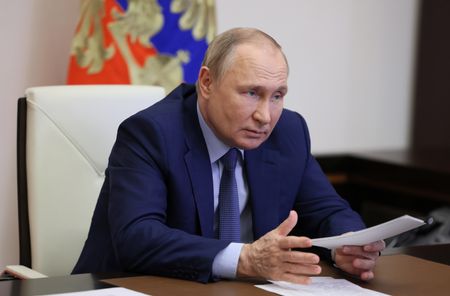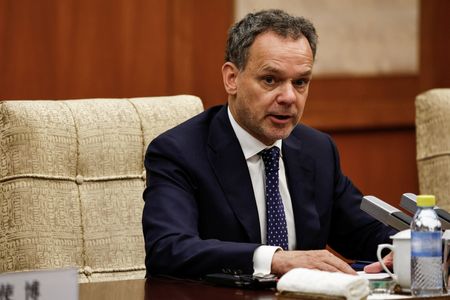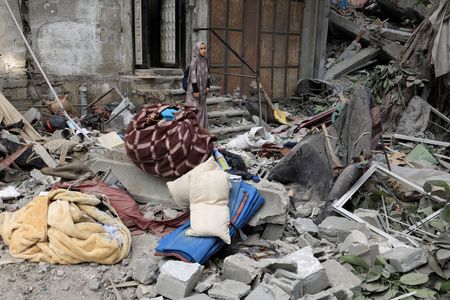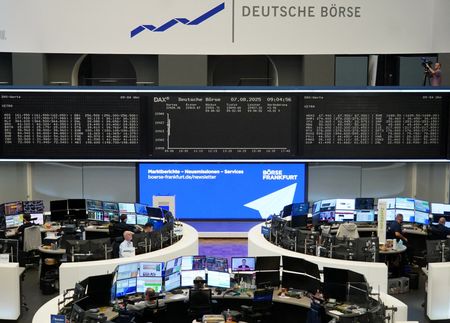MOSCOW (Reuters) -Russia’s seven-month budget deficit exceeded the target for the entire year by a quarter, Finance Ministry data showed on Thursday, highlighting the strain of financing the war in Ukraine.
U.S. President Donald Trump, who is expected to meet Russian President Vladimir Putin in the coming days, said this week that the Russian economy “stinks”, and that declining energy prices could pressure Putin to halt the war.
The data showed that from January to August this year, Russia ran a budget deficit of 4.9 trillion roubles ($61.44 billion), or 2.2% of gross domestic product.
Russia targets a deficit of 1.7% of GDP this year, having tripled it in May, citing falling oil prices and Trump’s tariff wars as the main reasons. Last month, the deficit was in line with this target.
The ministry reported that expenditures from January to July amounted to 25.19 trillion roubles, an increase of 20.8% compared to the same period last year. Meanwhile, revenues increased by only 2.8% year-on-year to 20.32 trillion roubles.
“This is mainly due to the advanced financing of expenses in January of the current year, as well as a decrease in oil and gas revenue inflows,” the ministry said, emphasizing that the current figure will not affect the annual target.
Russia has been increasing fiscal spending throughout its three and a half years of war in Ukraine to finance the military effort.
The Vedomosti business daily cited an unnamed Finance Ministry spokesman this week as saying that the ministry is planning another revision of this year’s budget in the autumn. It did not provide any details of the planned revision.
The daily also cited Dmitry Gusev, deputy head of the parliament’s budget committee, as saying that increased spending was the main reason for the revision. Gusev also mentioned that non-energy revenues were affected by lower investment.
The budget’s oil and gas revenues – its most important source of cash, slated to account for about 22% of total revenues this year – fell by 27% in July due to lower prices and the strong rouble.
Potential new sanctions, flagged by Trump in case Russia does not show any progress towards peace in Ukraine, added pressure on the economy, although the nature of new measures is not yet clear.
However, Russia recorded a third consecutive week of deflation on August 6, increasing the possibility of another key rate cut by the central bank in September. A further cut could potentially boost Russia’s flagging economic growth.
($1 = 79.7500 roubles)
(Writing by Gleb Bryanski; Editing by Susan Fenton and Jan Harvey)










